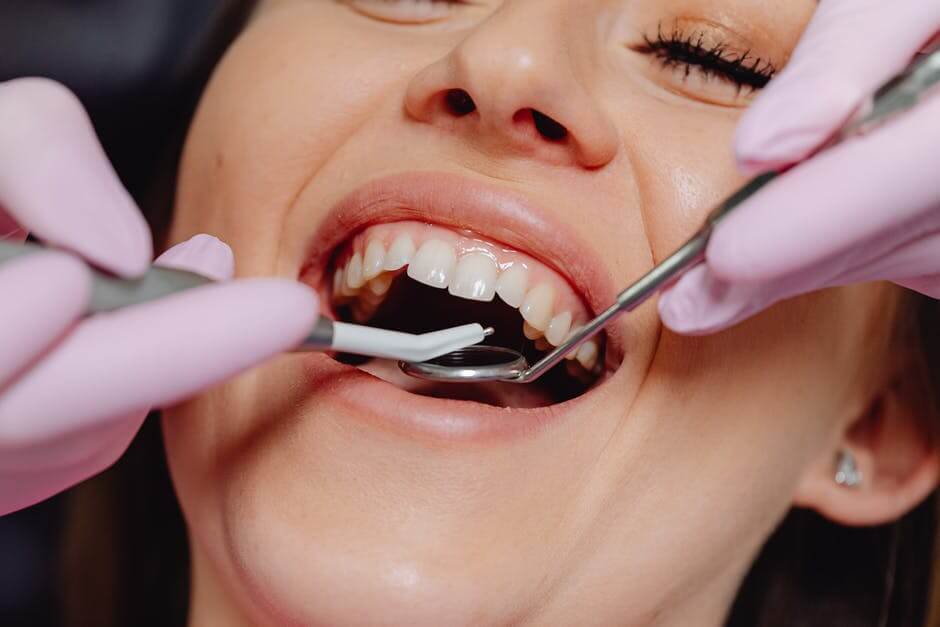Over 25% of adults require corrective jaw surgery at some point. The right jaw surgeon will help you speak, eat, breathe, talk, and smile with confidence.
Healthy jaw and facial structure impact self-esteem, health, and day-to-day quality of life. That’s why it’s important to pick the right oral surgeon and prepare for the procedure.
That’s why we’ve assembled a guide to preparing for corrective jaw surgery. Let’s get started!
Preparing for Corrective Jaw Surgery
Depending on the type of oral surgery you’re facing, healthcare practitioners may prepare you years in advance. For instance, braces are a great way to prepare your bone structure for necessary surgery.
Sometimes, jaw surgeries occur to improve biting, chewing, swallowing, speaking, jaw fit, closure, facial asymmetry, and so forth. Some of these issues can and should be partially corrected with braces.
Of course, corrective braces aren’t the only form of preparation. Crowns, pulling teeth, dental bridges, and implants are also important procedures.
Sometimes, jaw surgery is the icing on the cake. Your oral surgeon may need to do more comprehensive groundwork beforehand. That way, you can experience a safe, effective surgery.
Some healthcare professionals will also leverage 3D CT scanning, orthodontic anchoring devices, and other forms of digital treatment planning. These will help your surgeon prepare for the best jaw surgery possible.
What Types of Corrective Jaw Surgery Should I Prepare For?
It’s important to converse with your oral surgeon if you have questions since each procedure will be highly specific to you. However, there are three main types of corrective jaw surgery.
The first one is a maxillary osteotomy. This means that surgery will be conducted on the top part of your jaw. In other words, the surgeon will cut through the bone above the teeth.
Then, the surgeon will move the jaw and corresponding teeth forward. The goal is to make the upper and lower jaws and teeth match up properly.
The second type of corrective jaw surgery you could prepare for is a mandibular osteotomy. This jaw surgery focuses on the bottom part of the jaw. Your oral surgeon will cut behind your molars and down to the jawbone.
Then, the surgeon will move your lower jaw forward or backward, depending on your medical needs.
The final type of corrective jaw surgery is a bimaxillary osteotomy. These are two separate procedures combined into one. That way, the surgeon can help correct facial issues that impact both the upper and lower jaw.
Taking Care of Yourself Before Jaw Surgery
Corrective jaw surgery isn’t scary! It’s a procedure that countless oral surgeons perform over and over again. However, that doesn’t mean that you shouldn’t take care of yourself.
The physical trauma of surgery isn’t your body’s natural state. Your body needs resources, care, and rest to properly recover.
Start by reviewing any allergies, current medications, or medical needs with your doctor. They will be able to adjust prescriptions, painkillers, and so forth to work with your needs.
It’s also crucial to be honest at this stage. Many people deny drinking alcohol, using marijuana, or smoking cigarettes. Your doctor isn’t going to judge or penalize you based on your habits.
Instead, your doctor will be able to cater to your treatment plan based on what’s going on in the body you have, not the body or habits you wish for.
It’s also important to invest in a blender. Many people aren’t prepared for the difficulties of simply chewing and swallowing food.
However, those nutrients are crucial to a safe, speedy recovery. Get some of your favorite foods that can easily be pureed for a tasty shake, sauce, or drink.
You should also stock up on cold, nourishing foods like yogurt or applesauce. Think baby food—lots of fruit and vegetable nutrients mashed up for easy swallowing and digestion!
Arranging Mutual Aid
The concept of mutual aid has been around since the dawn of human society. Since the start of COVID-19, the concept has gained popularity. With taglines like “solidarity not charity”, people are developing small community pods.
Alternating childcare and bus pickup? Easy. Alternating grocery pickup duty between families? Even better. Coordinating with someone to make sure you can have a smooth oral surgery recovery? That’s the whole goal of mutual aid.
Make sure that you have someone who is able to stay with you in the initial stages of recovery. Even if you technically don’t need it, this can provide peace of mind for you and your loved ones.
It’s also crucial to arrange a ride. Many surgeons won’t release you otherwise. It will be unsafe for you to drive home under the influence of painkillers and lingering anesthesia.
If you don’t want to deal with scheduling an Uber in your post-surgery state, develop a plan ahead of time.
Preparing to Recuperate
When recuperating from oral surgery, remember to take careful notes on everything your surgeon recommends. They may even provide printed handouts if you think you may forget something. It’s all part of a careful preparation process to make sure you’re ok.
Remember the most important part of the preparation: that your healthcare provider is on call to help if your symptoms become troubling. Here are some things to watch it for.
Are you having trouble urinating? Are you struggling to close your eyes? Are you having difficulty with breathing, severe pain, swelling, fever, or severe pain? It’s important to either contact your healthcare provider or call 911, depending on the severity of your symptoms.
Getting Ready for Corrective Jaw Surgery
As any jaw surgeon will tell you, the benefits of corrective jaw surgery far outweigh the downsides. You’ll experience improved health, a better quality of life, an improved bite, easier chewing and swallowing, and improved self-esteem.
If you put in the time to prepare for your corrective jaw surgery, things will go much smoother in the long run. If you’re interested in a great oral surgery experience, contact us today!



